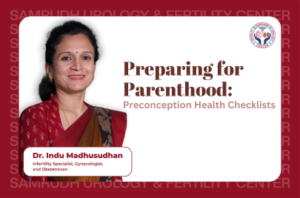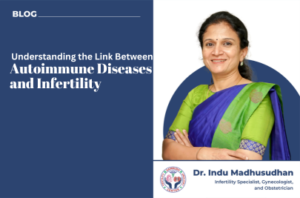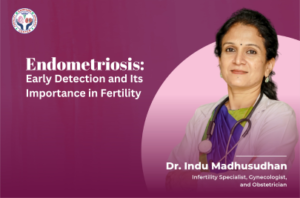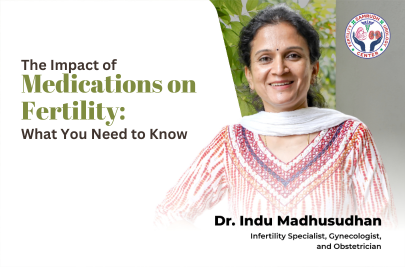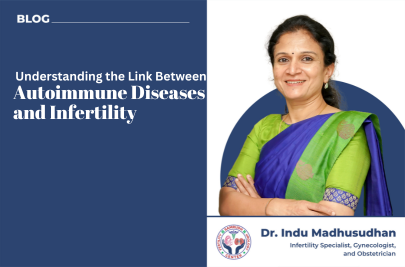When it comes to IVF, one crucial aspect that can influence the success of the treatment is sperm motility. Simply put, sperm motility refers to how well sperm can move. For IVF, understanding and improving sperm motility can significantly impact your chances of achieving a successful pregnancy. This article will break down what sperm motility is, why it’s so important for IVF, and the factors that determine the minimum sperm motility needed for effective treatment. We’ll also touch on the specific treatments available and how Samrudh can support you on this journey.
What is Sperm Motility?
Sperm motility is all about how well sperm can swim. It’s usually divided into two types: progressive motility, where sperm move in a straight line, and non-progressive motility, where sperm might move in circles or not move much at all. For IVF, progressive motility is especially important because it affects the sperm’s ability to reach and fertilize the egg.
Why Sperm Motility is Important for IVF Treatment
sperm motility for ivf is crucial for IVF because it directly affects fertilization. High sperm motility means that sperm can travel through the female reproductive tract and reach the egg more effectively. On the other hand, low motility can make it harder for sperm to reach and fertilize the egg, which can lower the chances of a successful IVF outcome. By focusing on improving sperm motility, you increase your chances of a successful pregnancy.
Minimum Sperm Motility for Effective IVF Treatment
There isn’t a one-size-fits-all answer for the minimum sperm motility for IVF, but general guidelines suggest that at least 32% of sperm should have progressive motility. However, different fertility doctors in Bangalore clinics might have their own standards and recommendations based on individual cases.
Factors that can influence the required sperm motility include:
Overall Sperm Quality: In addition to motility, factors such as sperm shape and concentration are also important. A detailed semen analysis helps determine these factors.
- Age and Health: The age and health of the male partner can impact sperm motility. Diabetes or hormonal imbalances can also affect the sperm motility.
Previous Fertility Issues: If there have been previous fertility problems or unsuccessful IVF attempts, your specialist might adjust the sperm motility requirements accordingly.
- Treatment Protocols: Some IVF techniques, like ICSI (Intracytoplasmic Sperm Injection), can help even if sperm motility is low. This method involves injecting sperm directly into the egg.
Factors Affecting Sperm Motility
Several factors can impact sperm motility, including:
- Lifestyle Choices:
- Smoking: Smoking is known to damage sperm DNA and impair motility. The chemicals found in cigarettes can negatively impact sperm quality.
- Heavy Drinking: Excessive alcohol consumption can reduce sperm count and motility. Moderation or abstinence is recommended.
- Poor Diet: A diet lacking essential nutrients can negatively affect sperm motility. A diet rich in antioxidants, vitamins, and minerals boosts sperm health.
- Health Conditions:
- Diabetes: Uncontrolled diabetes can lead to hormonal imbalances and affect sperm motility.Keeping blood sugar levels well-managed is essential.
- Infections: Conditions like prostatitis or sexually transmitted infections can impair sperm motility.Addressing these infections can enhance sperm health.
- Hormonal Imbalances: Issues such as low testosterone or thyroid disorders can impact sperm motility. Hormone therapies or medications can help restore balance.
- Environmental Exposure:
- Toxins: Exposure to industrial chemicals, pesticides, and heavy metals can harm sperm motility. Minimizing exposure to these toxins is beneficial.
Heat: Prolonged exposure to high temperatures, such as frequent use of hot tubs or saunas, can negatively affect sperm motility. Keeping the testicular area cool can make a difference.
- Genetics:
- Genetic Abnormalities: Conditions like Klinefelter syndrome or Y chromosome deletions can affect sperm motility. Genetic testing and specialized treatments might be required in these cases.
Treatment Specifics Related to Minimum Sperm Motility
Several factors can impact sperm motility, including:
- Lifestyle Choices:
- Smoking: Smoking is known to damage sperm DNA and impair motility. The chemicals found in cigarettes can negatively impact sperm quality.
- Heavy Drinking: Excessive alcohol consumption can reduce sperm count and motility. Moderation or abstinence is recommended.
- Poor Diet: A diet lacking essential nutrients can negatively affect sperm motility. A diet rich in antioxidants, vitamins, and minerals boosts sperm health.
- Health Conditions:
- Diabetes: Uncontrolled diabetes can lead to hormonal imbalances and affect sperm motility.Keeping blood sugar levels well-managed is essential.
- Infections: Conditions like prostatitis or sexually transmitted infections can impair sperm motility.Addressing these infections can enhance sperm health.
- Hormonal Imbalances: Issues such as low testosterone or thyroid disorders can impact sperm motility. Hormone therapies or medications can help restore balance.
- Environmental Exposure:
- Toxins: Exposure to industrial chemicals, pesticides, and heavy metals can harm sperm motility. Minimizing exposure to these toxins is beneficial.
- Heat: Prolonged exposure to high temperatures, such as frequent use of hot tubs or saunas, can negatively affect sperm motility. Keeping the testicular area cool can make a difference.
- Genetics:
- Genetic Abnormalities: Conditions like Klinefelter syndrome or Y chromosome deletions can affect sperm motility. Genetic testing and specialized treatments might be required in these cases.
Frequently Asked Questions (FAQs)
- What are the normal ranges for sperm motility?
The World Health Organization (WHO) considers 32% progressive motility as a baseline for normal sperm motility. Specific benchmarks might vary by clinic.
- Can low sperm motility be improved?
Yes, low sperm motility can often be improved with lifestyle changes, medical treatments, and addressing any underlying health issues. A fertility specialist can offer personalized advice.
- How does diet affect sperm motility?
A healthy diet rich in antioxidants, vitamins, and minerals can enhance sperm motility. Nutrients like zinc, vitamin C, and omega-3 fatty acids are particularly beneficial.
- How does age impact sperm motility? As men get older, both sperm motility and overall sperm quality may decrease. Older age can lead to lower motility and increased fertility issues, so monitoring sperm health is important.
- When should I consult a fertility doctor?
If you’re struggling with sperm motility or have had multiple unsuccessful IVF attempts, it’s a good idea to consult a fertility doctor. They can provide specialized tests and treatments tailored to your needs.
If you’re facing challenges with sperm motility and considering IVF, it’s crucial to seek advice from a fertility doctor in Bangalore At Samrudh, we offer comprehensive fertility care and expert support to help you achieve your goals. Our team is dedicated to creating personalized treatment plans to boost your chances of success. Visit Samrudh’s website today to schedule a consultation and take the first step toward a successful IVF journey.

